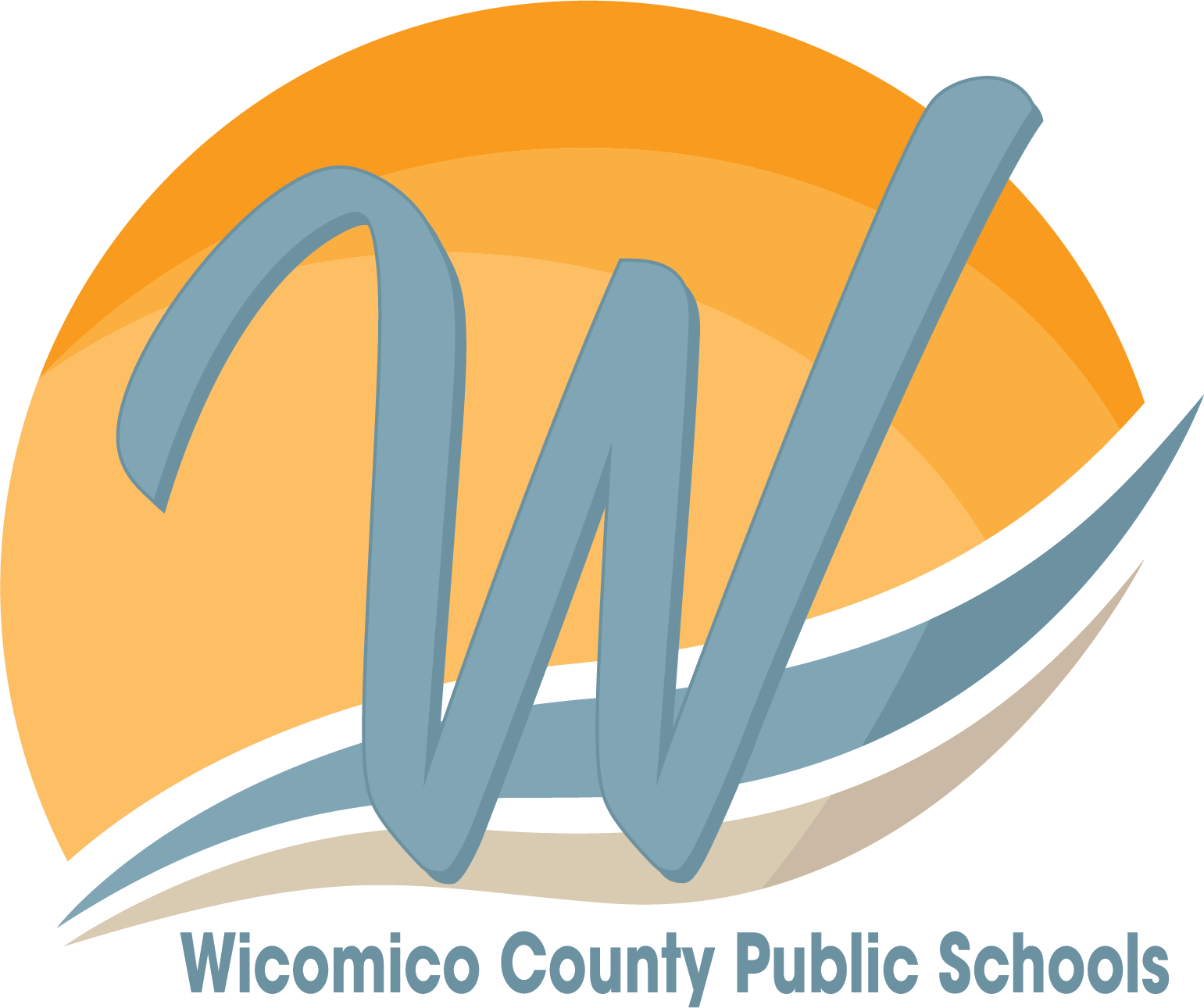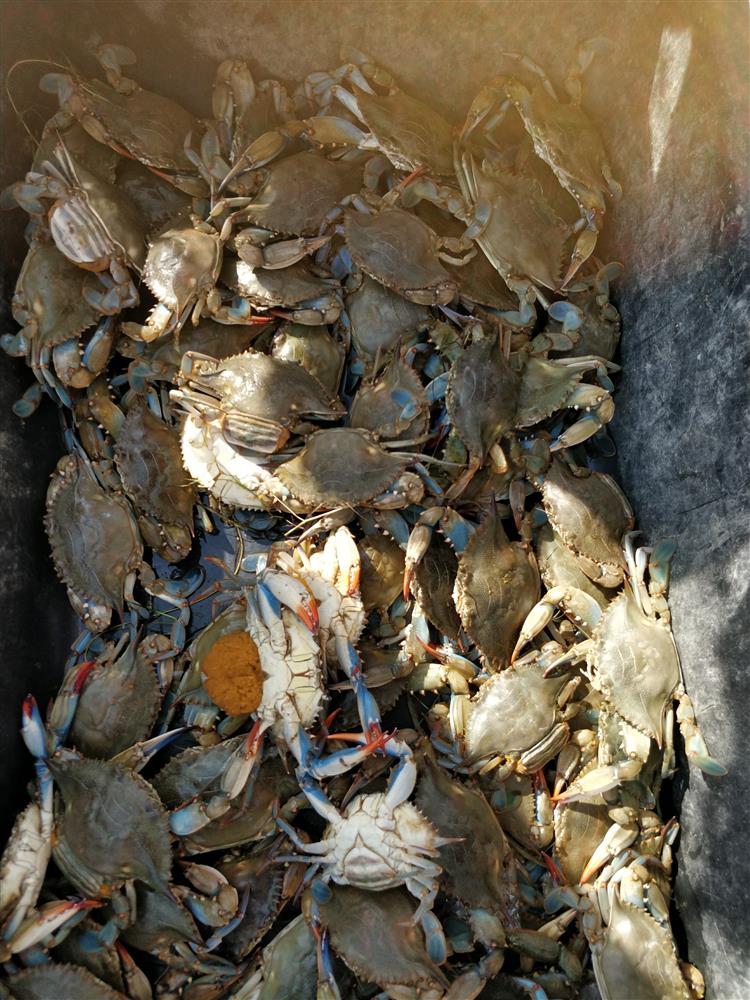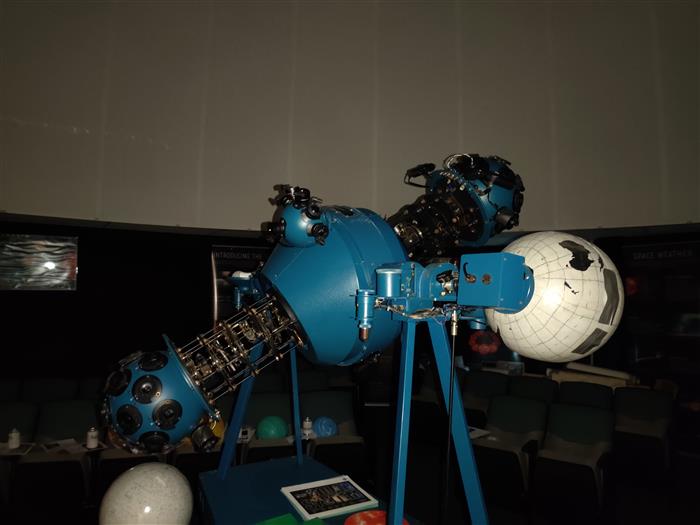Supervisor of Science
Ms. Hemalatha Bhaskaran
High School Science
Students will learn rigorous science content through active engagement in Science and Engineering Practices.
It is an exciting time for science and science education. In this rapidly changing, high-technology world, students must be equipped with the content knowledge, and as importantly, the science practices and tools in order to be competitive in college and career.
WCPS has aligned its K-12 Science Curriculum to the Next Generation Science Standards (NGSS), which were adopted by the Maryland State Board of Education in 2013. More information on the NGSS may be found on the Next Gen Science website or the Wonder of Science website.
According to the National Science Teaching Association (NSTA):
The Next Generation Science Standards aim to eliminate the practice of “teaching to the test.” Instead, they shift the focus from merely memorizing scientific facts to actually doing science—so students spend more time posing questions and discovering the answers for themselves.
Often, students can answer specific questions about concepts they covered in class, but can't translate that knowledge in applied situations. The standards avoid this disconnect by combining knowledge with practice, teaching students to develop ideas and evaluate them according to scientific principles.
NSTA has produced a Q&A for parents to help them the understand and anticipate the instructional changes their students should be experiencing in science class. It is accessible on this link.
Doing Science
The NGSS integrate three dimensions necessary to understand science. The Disciplinary Core Ideas (DCI) are the core science content that scientifically literate people should know. The Science & Engineering Practices (SEP) are the things that working scientists and engineers do as they seek to answer questions and develop solutions to problems. The Crosscutting Concepts (CCC) are the overarching ideas that students encounter in each of the scientific disciplines (Life, Earth/Space, Physical Sciences).
When students do science, they are not just memorizing a list of science facts; they are engaged in the SEP and CCC as a means to develop explanations of scientific phenomena. Science Instruction should be '3-Dimensional' engaging students equally in DCI, SEP, and CCC
Science and Engineering Practices
Asking questions (for science) and defining problems (for engineering)
Developing and using models
Planning and carrying out investigations
Analyzing and interpreting data
Using mathematics and computational thinking
Constructing explanations (for science) and designing solutions (for engineering)
Engaging in argument from evidence
Obtaining, evaluating, and communicating information
Crosscutting Concepts
Patterns
Cause and effect
Scale, proportion, and quantity
Systems and system models
Energy and matter: Flows, cycles, and conservation
Structure and function
Stability and Change
More information on the SEP and CCC may be found at the following links:
Science Staff
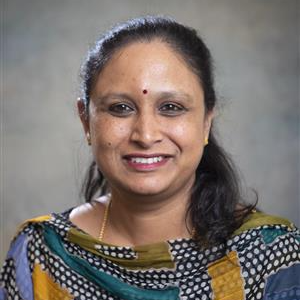

Science Specialist
Anna Ball

Science Specialist
Kevin Hill
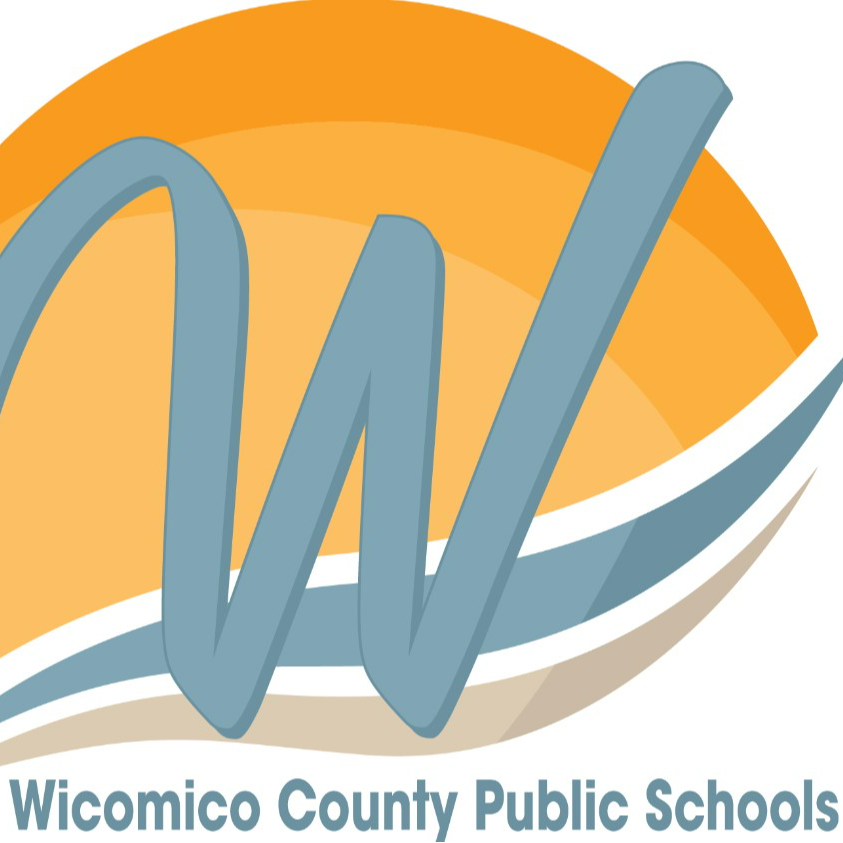
Office Associate - Central Office
Mary Kay Morgan
High School Science
The state of Maryland requires all students to complete 3 credits in science, aligned to NGSS, for high school graduation. Additionally, all students must meet the graduation requirement relative to a state assessment in science. Current WCPS students have several ways to meet this requirement:
Pass any administration of the Biology HSA prior to May, 2017 or
Take the Biology HSA in May, 2017 (no minimum score required) or
Take the Maryland Integrated Science Assessment (MISA) if/when assigned in the 2017-18, 18-19, 19-20, or 20-21 school years (no minimum score required)
As of 2021, MISA will become an end-of-course assessment for students enrolled in Biology or Honors Biology.
High School students in Wicomico County have a variety of Science courses from which to choose. Note that some courses have prerequisites - see the Course Catalog for details. Also note that all courses may not be available at every school. Course availability is determined by enrollment requests and availability of space and faculty.
Current Science Course Offerings
Environmental Science
Honors Environmental Science
Biology
Honors Biology
Physical Science
Honors Chemistry
Honors Physics
Advanced Placement Environmental Science
Advanced Placement Biology
Advanced Placement Chemistry
Advanced Placement Physics I
Advanced Placement Physics II
Honors Anatomy and Physiology (1/2 credit)
Honors Astronomy (1/2 credit - only available at Parkside High School)
Dual Enrollment
WCPS is pleased to offer students the opportunity to enroll in college science courses as part of our dual enrollment program. Students who enroll in and successfully complete these courses will earn high school and college credit. Note that receiving college credits does not guarantee that every college a student may later attend will accept the credits. Please contact your guidance counselor for more information and pre-enrollment requirements.
The table below indicates WCPS Science courses and their dual enrollment equivalents at local institutions of higher education. Please note that this is subject to change, consult guidance counselors prior to making enrollment decisions.
WCPS AP Course (Title and Course #) | Approved Course Wor-Wic (Dual Enrollment) | Approved Course Salisbury University | Approved Course University of Maryland Eastern Shore | Approved Course Other University or College |
|---|---|---|---|---|
AP Biology - 3562 | BIO 105 | BIOL 210 | BIOL 101/103 and BIOL 111/113 | *Any request from a college or university other than those noted on this chart MUST be accompanied by a course syllabus for review by the content supervisor. |
AP Chemistry - 3563 | CHM 105 and CHM 106 | CHEM 121 and CHEM 122 | CHEM 101 and CHEM 103 | |
AP Physics I - 3544
| PHY121 | PHYS 121 or PHYS 221 | PHYS 121 and PHYS 123 | |
AP Physics II – 3545 | PHY 122 | PHYS 123 or PHYS 223 | PHYS 122 and PHYS 124 | |
AP Environmental Science - 3564 | ENV 101 | BIOL/GEOG 150 | ENVS 101 |
NOTE: The above chart is subject to change, please consult the school guidance office prior to scheduling college courses for dual enrollment.
Environmental Literacy in Wicomico County Public Schools
Wicomico County is truly a special place, and an environmental gem on Maryland’s Eastern Shore. Our students and citizens live, work, and play in the Chesapeake Bay watershed, and it is essential for our future that all citizens develop the knowledge and habits that will promote environmental sustainability.
To that end, WCPS is committed to a multi-prong approach to promoting environmental literacy in all of our schools. This includes
Green Schools – As of 2020 thirteen of our twenty-four schools have been certified as Maryland Green Schools. All thirteen have been certified within the past four years, and our goals is for all schools to become certified Green Schools. Nationally recognized, the Maryland Green Schools Award Program (MDGS) allows schools and their communities to evaluate their efforts in environmental sustainability. Participating schools empower youth to make changes to reduce environmental impact, encourage sustainability and foster environmental literacy. Learn more about the MDGS program here. Our current Green Schools and their year of certification are:
Beaver Run Elementary School (2019)
Choices Academy (2020)
Fruitland Intermediate School (2018)
Fruitland Primary School (2017)
Glen Avenue Elementary (2020)
James M. Bennett High School (2017)
Northwestern Elementary (2020)
Parkside High School (2017)
Pemberton Elementary (2020)
Pinehurst Elementary (2020)
Prince Street Elementary (2020)
Westside Intermediate School (2018)
Willards Elementary School (2017)
Environmental Literacy Program – WCPS is committed to meeting the E-Lit requirements set forth in COMAR and has developed systemic programs of environmental education within each grade band (elementary, middle, and high school). Currently a mixture of partnerships, grants and local funds are being used to support systemic programs in kindergarten, grades 3, 6, & 7, and high school.
Engagement in Student-Environmental Action Projects – WCPS students have investigated local, regional, and global environmental issues and developed/implemented actions to address these. Often times, these action projects also help students meet Maryland's Student Service-Learning graduation requirement. Actions taken in recent years include:
Planning and installing native-plant reading gardens
Stormwater drain painting to educate the public about the watershed
Constructing and placing bat and bird boxes
Production of environmental Public Service Announcements for school closed-circuit television broadcast
Vision
It is the vision of WCPS that all Wicomico students graduate as environmentally literate citizens who are active, engaged citizens with the knowledge and attitudes required to care for the local, regional, and global environment. To meet this, students will be engaged in a rigorous plan of environmental literacy from kindergarten to high school. The WCPS curriculum includes a full alignment to Maryland’s Environmental Literacy Standards and meets the requirements set forth in COMAR.
Curriculum Connections
Much of WCPS’s curricular response to the E-Lit standards and requirements take place in the science classroom. WCPS has fully adopted the Next Generation Science Standards (NGSS) and has rewritten its science curriculum to align with NGSS. NGSS includes connections to environmental issues across all domains, and our curriculum updates take advantage of these to include environmental connections at each grade level.
WCPS recognizes that our vision of environmental literacy extends beyond the classroom, and is committed to incorporating E-Lit standards in a multi-disciplinary manner as appropriate. To support this, teachers from K-12 in areas including mathematics, social studies, ELA, Gifted & Talented, and others have participated in the annual Environmental Literacy Professional Development workshop organized by the Supervisor of Science and Chesapeake Bay Foundation. As part of this program, teachers have used the Environmental Literacy Model Planning Tool to develop model instructional sequences that incorporate E-Lit standards across all content areas.
Youth Environmental Action Summit
In April 2019, the Ward Museum and NOAA co-sponsored the first annual Youth Environmental Action Summit (YEAS). Dozens of students from elementary, middle, and high schools across the lower Eastern Shore participated in YEAS by identifying a local environmental issue and planning a solution. At the YEAS conference, groups of students presented their proposals in an environment similar to TV's Shark Tank - making pitches to local funding agencies to receive the money required to carry out their projects. WCPS was very-well represented at YEAS, with students from six schools earning over $7,300 to implement projects in schools and the community. Funded schools include:
East Salisbury Elementary
Pinehurst Elementary
Salisbury Middle
Wicomico Middle
Parkside High
Parkside CTE
James M. Bennett High
The photos below are three of our student groups making their presentations at YEAS 2019.
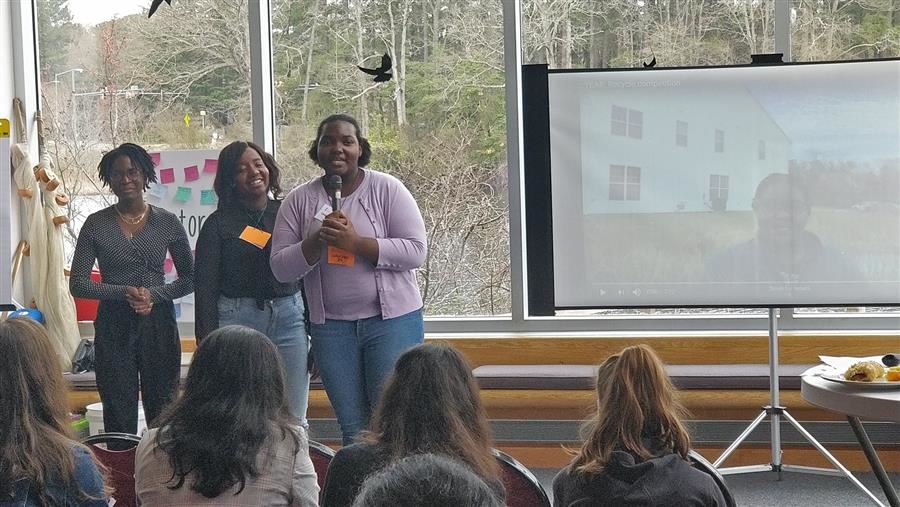
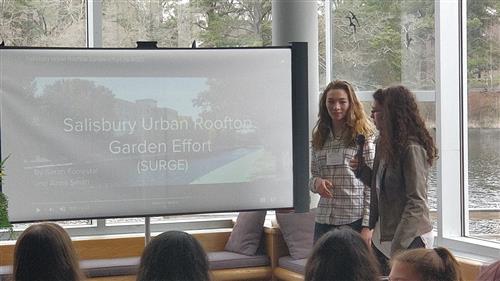
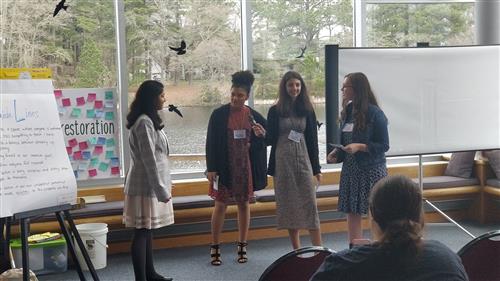
Partners
WCPS is proud to partner with a number of outside organizations that assist us in meeting our E-Lit goals. These partners include:
Chesapeake Bay Trust – funding for PD and systemic MWEE planning/implementation
Ward Museum – EE provider, grant partner, Green School advisor, Kindergarten and High School systemic MWEE programs
Wicomico Environmental Trust – water quality data, school presentations, consulting
Pickering Creek Audubon Center – Grade 6 systemic MWEE program
Nanticoke Watershed Alliance – Grade 7 systemic MWEE program
Salisbury Zoo – Grade 3 Local Ecology and Forests (LEAF) program
Maryland Conservation Corps – LEAF program
Maryland Association of Environmental and Outdoor Education - Green School Program
Chesapeake Bay Foundation - Provides Environmental Education experiences for students and Professional Development for teachers.
NOAA Chesapeake Bay Office - Provides Environmental Education, supports YEAS, and provides real-time environmental data for educational use.
Parkside Planetarium
Parkside High School is home to Wicomico County Public Schools' planetarium. The original (1974) Minolta MS-8 star projector is able to display a view of the night sky from any moment in time and at any location on the earth. Thanks to annual maintenance, our MS-8 has the distinction of being the fourth-oldest Minolta star projector in operation in North America. Recent planetarium upgrades include:
Full dome LCD projection system, allowing display of educational videos in astronomy and a range of other content areas
New seats, carpet and up-to-code sprinkler system installed
Repainting of the 30' planetarium dome
Fabrication & installation of a mechanical lift system to support the MS-8 and allow for better view of the full dome projection system
Installation of a 75" flat panel LCD
Installation of a professional sound system (replaced circa 1980 home stereo system in 2021)
The planetarium is home to the Honors Astronomy course, and also hosts nearly 2,000 1st and 5th grade students during the school year. The planetarium welcomes outside groups, such as scouts, private schools, and summer camps. In addition, planetarium staff are planning evening community outreach events for the 2022-23 school year.
Organizations interested in having a planetarium presentation may contact Science Supervisor, Ms. Hemalatha Bhaskaran, for rates and availability.
